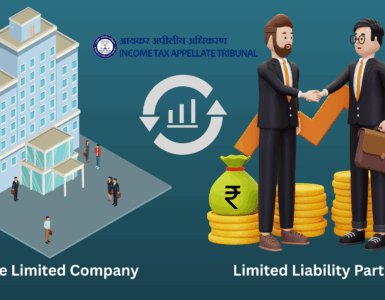The Bombay High Court, in a far-reaching order, has set aside an earlier order of National Company Law Tribunal (NCLT) which had admitted an insolvency petition against Rolta India. A two-member Mumbai bench of the tribunal admitted the plea of — Value Partner Greater China High Yield Income Fund and Pinpoint Multi-Strategy Fund — claiming default of around Rs 1,060 crore.
Kamal Singh, the director of the company, had challenged the NCLT’s order. The High Court set aside the appointment of an insolvency resolution professional. The NCLT had appointed Shailendra Ajmera of EY as the interim professional of the company to complete the Corporate Insolvency Resolution Process.
How the Case unfolded?
- Instead of going to NCLAT, a writ petition was filed in the High Court against the NCLT order.
- It is alleged that on 22nd October 2019, the Bench of the Judicial Member and Technical Member did not conduct any adjudicatory business. It is stated that the order has been put in communication without the same having been pronounced.
- The grounds are then set out and in relation to the validity and legality of the order, it is stated that this order is passed in violation of the principles of natural justice and the procedure established by law, which governs the functioning of the NCLT.
Various legal Provisions involved:
Writ Petition challenge:
- Writ Petition under Article 226 of the Constitution of India challenges the order passed by the NCLT.
Regarding NCLT Order
- Rule 150 to Rule 152
- Rule 156 – Making entries by Court Master & Rule 157 – Transmission of order by the Court Master)
- Rule 89 (“Preparation and publication of daily Cause List”) and Rule 90 (Carry forward of cause list and adjournment of cases on account of non-sitting of a Bench), Rule 91 – Diaries, Rule 92 – Order sheet, Rule 93 – Maintenance of court diary of the NCLT Rules, 2019
Rule: 150. Pronouncement of Order-
- The Tribunal, after hearing the applicant and respondent, shall make and pronounce an order either at once or, as soon as thereafter as may be practicable but not later than thirty days from the final hearing.
NCLAT: In this case, We are not concerned with a situation where this time limit is not adhered to. - Every order of the Tribunal shall be in writing and shall be signed and dated by the President or Member or Members constituting the Bench which heard the case and pronounced the order,
- A certified copy of every order passed by the Tribunal shall be given to the parties
- The Tribunal, may transmit order made by it to any court for enforcement, on application made by either of the parties to the order or suo motu.
- Every order or judgment or notice shall bear the seal of the Tribunal.
Rule: 151. Pronouncement of order by any one member of the Bench-
- Any Member of the Bench may pronounce the order for and on behalf of the Bench.
- When an order is pronounced under this rule, the Court Master shall make a note in the order sheet, that the order of the Bench consisting of President and Members was pronounced in open court on behalf of the Bench.
NCLAT: If there was absolutely no necessity of pronouncement of the order, Rule 151 would not have been inserted at all.
Rule: 152. Authorising any member to pronounce order-
- If the Members of the Bench who heard the case are not readily available or have ceased to be Members of the Tribunal, the President may authorise any other Member to pronounce the order on his behalf after being satisfied that the order has been duly prepared and signed by all the Members who heard the case.
- The order pronounced by the Member so authorised shall be deemed to be duly pronounced.
- The Member so authorised for pronouncement of the order shall affix his signature in the order sheet of the case stating that he has pronounced the order as provided in this rule.
- If the order cannot be signed by reason of death, retirement or resignation or for any other reason by anyone of the Members of the Bench who heard the case, it shall be deemed to have been released from part-heard and listed afresh for hearing.”
NCLAT: This can be done after the President is satisfied that the order has been duly prepared and signed by all the Members who heard the case. Thus, as per rules a duly prepared and signed order can be pronounced by another Member who was not part of the Bench which heard the case.
NCLAT on Rule 152 (4): The rule carve out exceptions for the benefit and convenience of parties and litigants. The exceptions do not enable the Members to bypass or circumvent the rules.
Rule: 156. Making of entries by Court Master-
Immediately on pronouncement of an order by the Bench, the Court Master shall make necessary endorsement on the case file regarding the date of such pronouncement, the nature of disposal and the constitution of the Bench pronouncing the order and he shall also make necessary entries in the court diary maintained by him.
Rule: 157. Transmission of order by the Court Master-
- The Court Master shall immediately on pronouncement of order, transmit the order with the case file to the Deputy Registrar.
- On receipt of the order from the Court Master, the Deputy Registrar shall after due scrutiny, satisfy himself that the provisions of these rules have been duly compiled with and in token thereof affix his initials with date on the outer cover of the order.
- The Deputy Registrar shall thereafter cause to transmit the case file and the order to the Registry for taking steps to prepare copies and their communication to the parties.
NCLAT: In this case, we searched from the records any proof or evidence of such transmission of the order by the Court Master or the entries by the Court Master and we found nothing. In fact, in this case, the records are maintained in a haphazard manner. There is index and there is nothing like required and proper entries by the Court Master or order sheets in the file.
Case laws referred by the High court:
Regarding Writ petition:
- C. Basapa vs. T. Nagappa and Anr (Related to occasion to refer to the essential features, effect and grounds on which the writ of certiorari is issued) (Five Judge Bench of the Hon’ble Supreme Court)
- Hari Vishnu Kamath vs. Ahmad Ishaque and Ors.( Supreme court)
- M.Allison and Anr. vs. B.L.Sen and Ors (SC)
- Sewpujanrai Indrasanarai Ltd. vs. Collector of Customs and Ors (Supreme Court)
- Syed Yakoob vs. K. S. Radhakrishnan and Ors
- Surya Dev Rai vs. Ram Chander Rai and Ors (Salutary principles explained by SC wrt to writ)
- Pushpa Shah vs. Union of India (SC regarding whether the statutory authority has not acted in accordance with the provisions of the enactment in question)
On Pronouncement of Order:
- Supreme court judgment in the case of Surendra Singh (supra) and in the case of State of Uttar Pradesh and Ors. (supra)
- Iqbal Ismail Sodawala vs. The State of Maharashtra (Supreme court)
- K. Jain vs. Union of India and Ors (Supreme court)
High Court Judgement:
On question of entertaining a writ petition:
The writ of certiorari (a writ or order by which a higher court reviews a case tried in a lower court) is issued for correcting gross errors of jurisdiction, namely when a subordinate court is found to have acted without jurisdiction by assuming jurisdiction where there exists none or in excess of its jurisdiction by overstepping or crossing the limits of jurisdiction or acting in flagrant disregard of law or the rules of procedure or acting in violation of principles of natural justice where there is no procedure specified and thereby occasioning failure of justice.
If a deviation or departure therefrom has resulted in failure of justice, then, we do not think that there is any prohibition in issuing a writ of certiorari.
There is no question of then refusing it merely because the opponent or opposite party says that the person or the party invoking this writ has an alternate and equally efficacious remedy.
On NCLT Order
If we allow the tribunal to work and function in the manner it has done in the present case, it will set a wrong precedent and the tribunal would continue to resort to this procedure as a regular, routine norm. Pronouncement of judicial orders ensures that parties are not taken by surprise as far reaching consequences follow after the operative order and direction are known.
If there is a requirement of pronouncement and that has not been adhered to, then, the result is a nullity. If the judgment is not pronounced at all, then, such an order is nullity.
We, accordingly, issue that writ of certiorari and quash and set aside the impugned order on the ground that the same is a nullity. Once it is a nullity and cannot be allowed to stand, then, we have no alternative, but to declare that all steps consequential to this order would also not survive.
Now, the application made by the applicant in terms of subsections (1) and (2) of section 7 of the IBC will be heard afresh on merits and in accordance with law.
We have nullified the order, we have not squashed the proceedings themselves. We have not in any manner stripped the NCLT and its power, authority and jurisdiction to decide the application in accordance with law. It should so proceed and decide it.
REFERENCE: Kamal K. Singh (Applicant) Vs Union of India, Rolta India & others (Respondent)
(Bombay High Court – Write Petition 3250 OF 2019)





Add comment